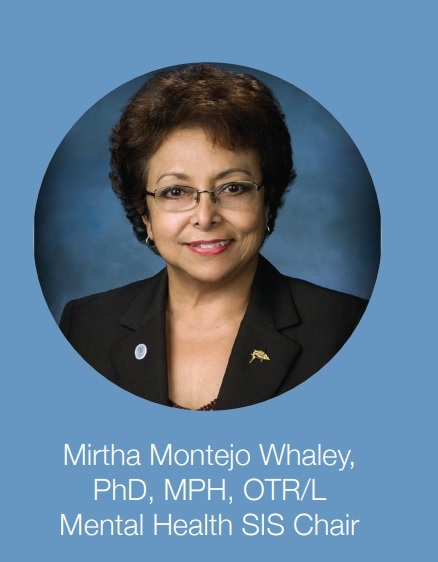 Occupational Therapy Gives a Smile for Life
Occupational Therapy Gives a Smile for Life
FLOTEC submission
 Occupational Therapy Gives a Smile for Life
Occupational Therapy Gives a Smile for Life
FLOTEC submission
By: Gustavo Reinoso, Ph.D., OTR/L Dominique Kiefer-Blanche, OTD, OTR/L Erna I. Blanche, Ph.D., OTR/L, FAOTA
As our understanding of sensory integration and the processing construct evolves, so should our measures and assessments. Occupational therapists working with children who present deficits in sensory integration and processing use an array of measures in clinical practice, such as standardized testing, proxy questionnaires, family interviews, biographical accounts, and self-report measures. The information provided by these measures assist practitioners in composing a clinical profile, formulate hypotheses, and develop a plan of care relevant to these children’s lives and their families. The results from these measures are often combined with the use of clinical observations. The primary purpose of clinical observations is to allow the therapist to use clinical judgment to analyze a child’s performance in relationship to sensory processing as informed by evolving theory and research (Blanche & Reinoso, 2008).
Occupational Therapy education is not unlike other programs of study when it comes to the trials and tribulations of student engagement. College educators and administers are constantly trying to find new ways to improve students’ academic performance and retention. Literature demonstrates that brief psychological interventions in education may have a significant positive impact on performance and retention (Yeager & Walton, 2011). Specifically, brief socialpsychological interventions that focus on the way students think, feel, and believe regarding academics, have been shown to improve educational achievement (Cohen, Garcia, Apfel, & Master, 2006; Walton & Cohen, 2011). At multiple sites and disciplines (e.g., psychology undergraduate students, OTA students), the hypothesis that personalized text messages about departmental activities and resources could increase student retention was tested.
Methods: At orientation, 48 students completed a series of questionnaires, provided their cell phone numbers, and agreed to receive text messages about program events, campus resources, college announcements, as well as selective course announcements. Students were randomly assigned into text message conditions, providing a sample of 20 students in the experimental and control conditions. Both conditions received one text every week, but the experimental group texts included the student name to personalize the information in order to make the student feel identified and like they belonged to the department and the college environment (see Table 1 for an example). The messages were sent from a temporary Skype account to provide information and encourage feelings of belongingness and connectedness to the major and college. Following the 12-week semester, participants were asked to complete an online survey, identical to the ones they completed at orientation. In addition, participants were asked about their intentions to continue their program of study and overall enrollment at the college. Participant schedules were reviewed following the 12-week semester to investigate if they returned to their studies.

Trauma is widespread and has profound effects that can lead to emotional and physical distress throughout the lifespan. Statistics from the Center for Disease Control and Prevention (CDC) on abuse and violence in the United States indicate the following:
FOTA representatives had a sit-down question-and-answer session with Florida Medicaid officials in March of 2018. I called in by phone. We had several questions about Medicaid policies regarding both pediatric and adult care issues. After all was said and done, the most striking comment we had to take away from our informative and respectful meeting was this:
“We just haven’t had many complaints about Occupational Therapy and Medicaid….you need to encourage your clients and practitioners to contact Medicaid to raise their concerns. When we have more complaints filed, we can look at our policies and consider what changes need to be made.”
Join the FOTA leadership and membership in acknowledging National Children's Mental Health Day, May 10th, 2018. In service of our FOTA vision to be the respected authority on occupational therapy’s contribution to health and well-being in Florida, we have assembled a humble offering of clinician's resources and supportive information for OTs from across the state to use in service to children's mental health. Our Ad Hoc Committee on School Mental Health is developing further programming to offer to our members in the future, and we are developing policy statements to share with our advocacy team and our Florida legislators.
FOTA believes in the potential for OT practitioners to impact child well being and provide new and innovative programs to meet the needs of our students in schools across Florida. We believe in the preventative model, nurturing social and emotional learning, and skills for emotional regulation, social skills, and collaborative learning -- all through occupation-based activities. Please take time today, and everyday to nurture the wellness of children in your life and in your practice. See our resources below --an assemblage that is still a work in development. Take Care!
Amazon searches starting from www.flota.org benefit FOTA!